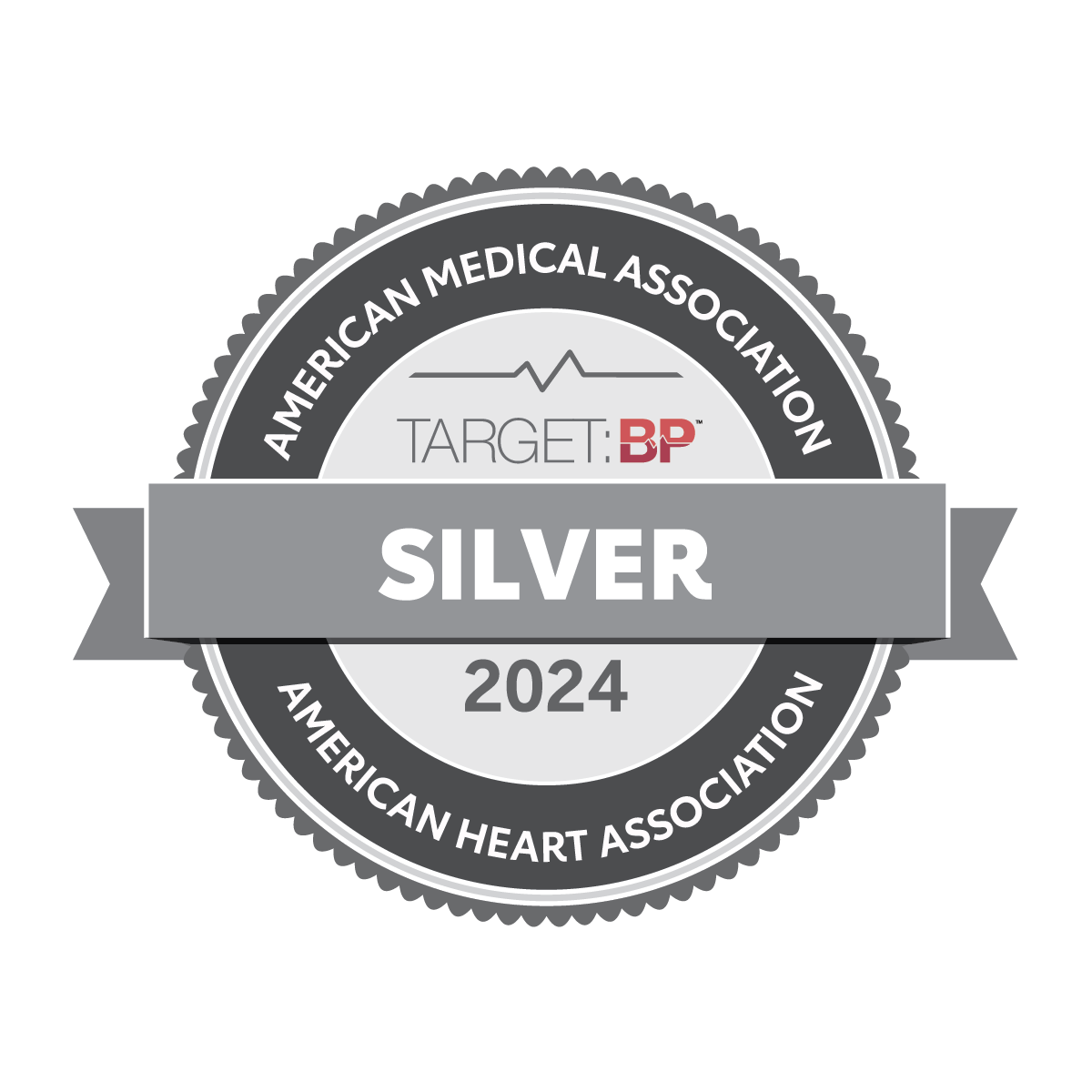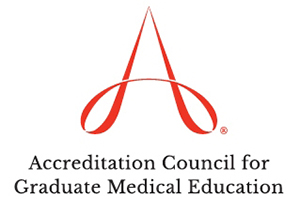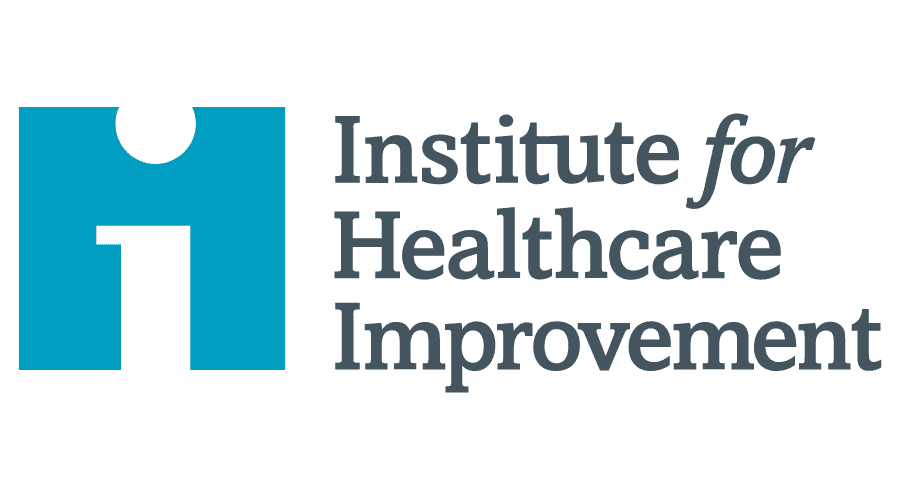Physician eager ‘to do the work’ of The Wright Center
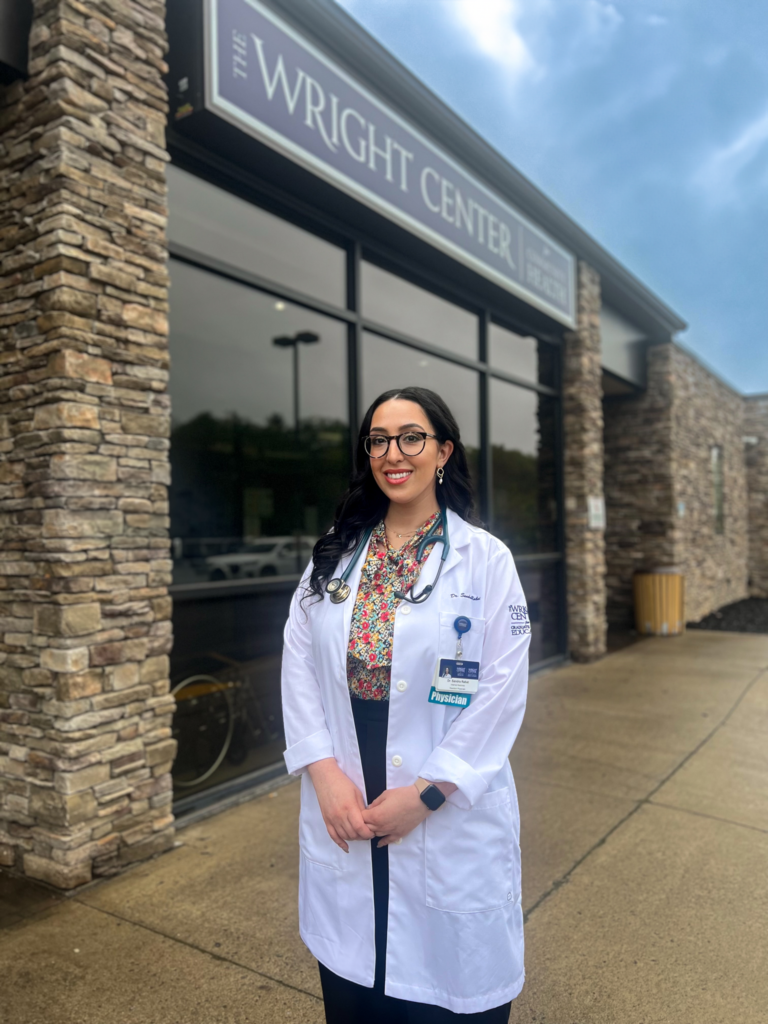
Dr. Sandra Rabat embraces opportunities to serve the Scranton community as a pioneering medical school student and now as a resident physician
For Sandra Rabat ’26, D.O., there’s something comfortable about going first.
She was the first in her family to become a physician. On her way to reaching that goal, she was in the first cohort of students from A.T. Still University School of Osteopathic Medicine in Arizona (ATSU-SOMA) to come to Scranton, Pennsylvania, to complete three years of medical school education at The Wright Center for Community Health.
Since she arrived at The Wright Center in 2020, where she is now a first-year internal medicine resident, Dr. Rabat has continued to be out in front.
She has advocated on public health issues such as organ donation, encouraging patient-provider discussions, and other advanced care planning services. She has also become a passionate proponent of preventive medicine and is in the early stages of launching a project to encourage more patients to receive routine breast cancer screenings. “I wanted to train in a community-based residency program like The Wright Center because there’s important work to be done, and I’m here to do the work,” she says. “I want to be a part of it.”
Her enthusiasm and skills have drawn the attention of the organization’s top leaders, including Linda Thomas-Hemak, M.D., FACP, FAAP, president and CEO of The Wright Centers for Community Health and Graduate Medical Education. During a “mission moment” segment of a staff meeting, Dr. Thomas-Hemak spotlighted Dr. Rabat’s efforts, praising her patient-centered approach to care as well as her quality-improvement project to better promote and deliver advanced care planning (ACP) services.
“She is such a light,” says Dr. Thomas-Hemak.
In many ways, 28-year-old Dr. Rabat represents the type of people drawn to learn and work at The Wright Center: compassionate healers who are driven to help underserved individuals and families and advocate for needed changes to America’s health care system.
The Wright Center, founded in Lackawanna County nearly 50 years ago, has become a hub of interprofessional health education. It offers training and learning opportunities to resident and fellow physicians from the U.S. and abroad, medical school students enrolled in ATSU-SOMA, physician assistants, medical assistants, and others. They work in teams, led by experienced professionals, to provide whole-person primary health services to patients of all ages and income levels, including underinsured or uninsured individuals.
This Teaching Health Center environment allows clinicians like Dr. Rabat and her peers to develop their medical knowledge and skills. At the same time, they gain invaluable insights and experiences in the community, connecting with vulnerable populations and often discovering how to be better doctors in the process.
‘A force for change’
As a medical school student, for example, Dr. Rabat was introduced while at The Wright Center to a supplementary course of study offered by one of its community partners: the Pennsylvania Area Health Education Center (AHEC). The AHEC Scholars Program aims to empower participants “to make a meaningful difference in the lives of vulnerable populations” and “become a force for change,” according to AHEC.
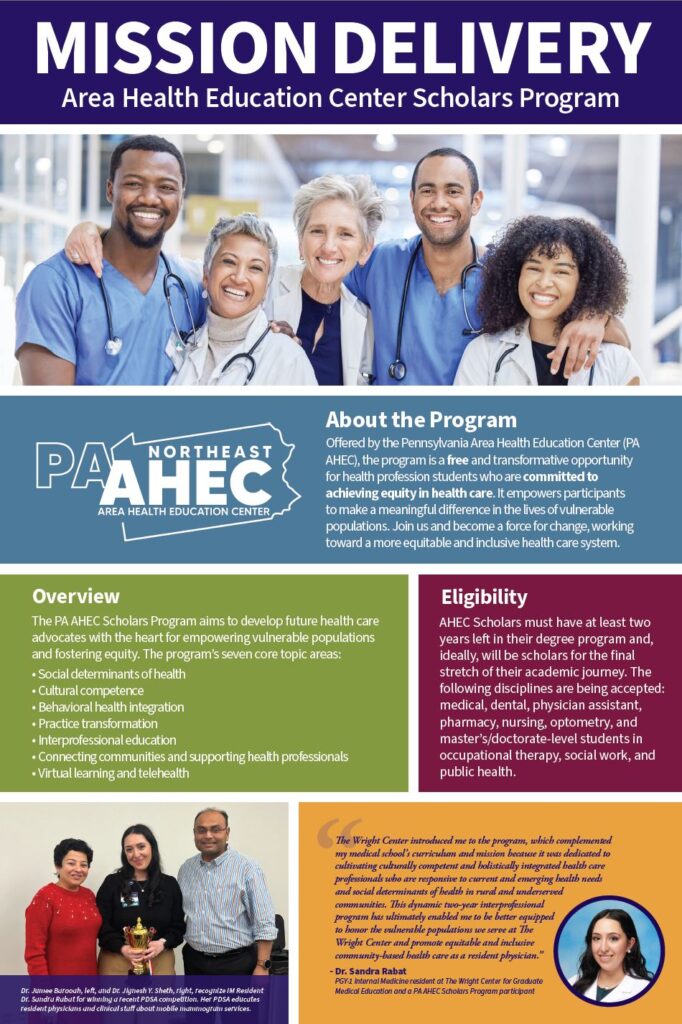
Dr. Sandra Rabat is featured on a poster about the Pennsylvania Area Health Education Center Scholars Program.
She jumped at the chance and was accepted into the dynamic two-year program. Participants learn about core topics, including behavioral health integration.
“I wanted more exposure to those topics. I knew it was going to be important for my medical career, especially because I’m interested in public health and helping to give back to our communities,” says Dr. Rabat. “It just made sense for me to do it, and AHEC made it easy.”
In particular, Dr. Rabat remembers a powerful presentation during which she heard from victims of human trafficking. Throughout her time in the AHEC Scholars Program, she was exposed to lessons that went beyond medical school’s traditional curriculum, which she says “aids to your evolution of becoming a well-rounded physician and taking care of patients.”
A native of Erie, Pennsylvania, Dr. Rabat can trace her still-evolving career journey back to her hometown, where her interest in medicine was borne partly out of personal loss.
‘In memory of my father’
Dr. Rabat’s father was in the backyard of the family’s home, gardening with his wife, when he had a heart attack. Neighbors began CPR. Dr. Rabat, then in her first year of high school, called 911.
After days in the ICU, her father died at age 62. He had served on Erie’s water and parking authorities and contributed to the community in many other ways, including by operating the family-owned technical school.
Reflecting on the loss, Dr. Rabat says, “It pushed me to want to do work in preventive medicine and help people with chronic conditions – in memory of my father.”
She earned a bachelor’s degree in biochemistry and cell biology at the University of California, San Diego. Next, she tackled medical school at ATSU-SOMA, spending one year on its campus in Mesa, Arizona, before completing her degree in Scranton. She chose The Wright Center, which at the time had never hosted a class of medical school students, without hesitation.
“I just envisioned myself practicing in Pennsylvania,” she explains. Plus, she can also make car trips from Scranton to visit her family in Erie.
Dr. Rabat appreciated her medical school experience, especially the mentorship of many “strong primary care leaders at The Wright Center,” including Erin McFadden ’12, M.D., a regional director of medical education for ATSU-SOMA.
Dr. Rabat matched with The Wright Center for Graduate Medical Education and began her three-year Internal Medicine Residency in July 2023. She currently serves as a resident leader, a post in which she advocates for her peers and tries to keep them well-informed about activities throughout the nonprofit enterprise.
Dr. Rabat says it is crucial to include conversations about ACP in each Medicare annual wellness visit for patients 65 and older, but clinicians should be prepared to discuss the topic with adults of all ages when requested or warranted.
“It’s going to help patients and their families avoid medical futility and other potential problems with end-of-life decisions,” she says. “This topic is important, and it affects everyone.”
Learn more about The Wright Center for Graduate Medical Education’s residency and fellowship programs at TheWrightCenter.org.
T

